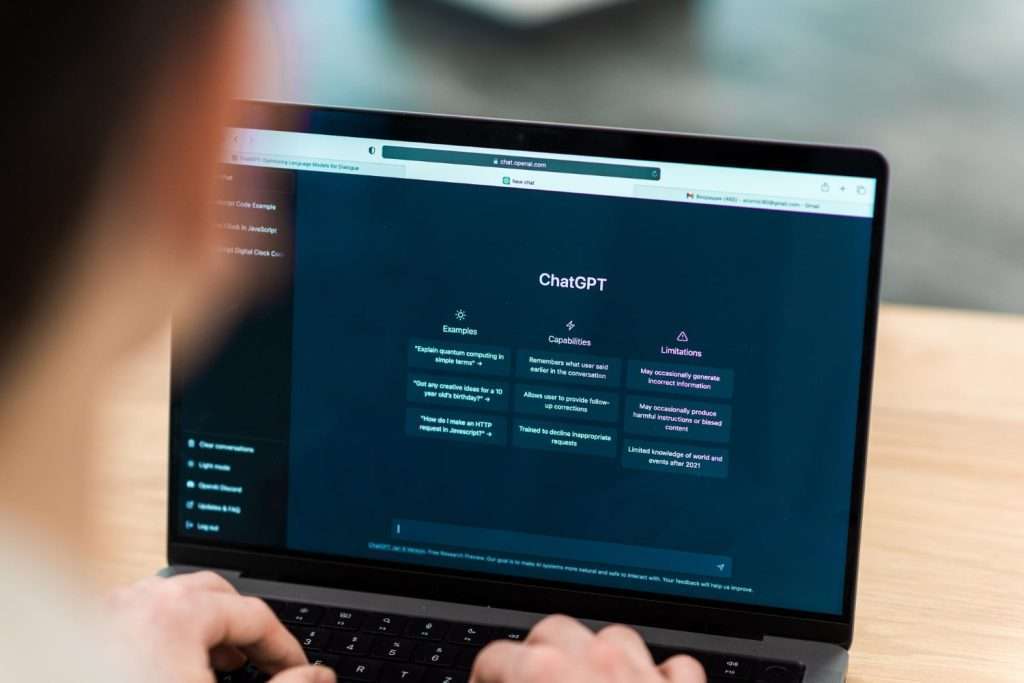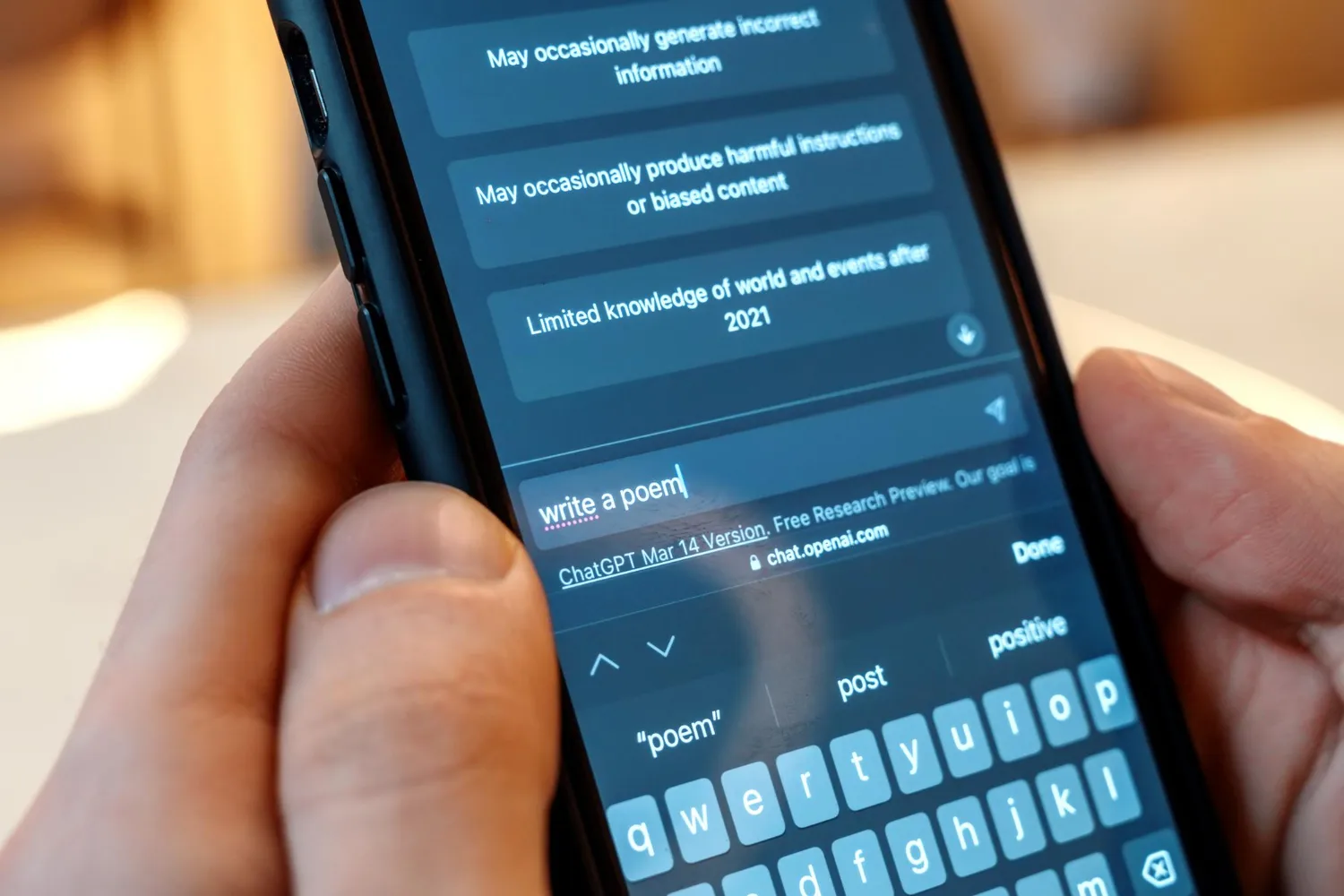ChatGPT, developed by OpenAI, is rapidly becoming a game-changer in the content creation landscape. Its ability to generate human-like responses to prompts is revolutionizing how creators approach writing, ideation, and even content strategy.
For those looking to push the bounds of creativity and efficiency, ChatGPT offers a tool of unparalleled power.
Unlocking Creative Potentials
The crux of ChatGPT’s genius lies in its training data and algorithms, enabling it to understand and generate text that feels genuinely human. ChatGPT prompts serve as the key to unlocking this potential, allowing users to guide the AI towards producing specific types of content.
- Defining ChatGPT: A cutting-edge AI developed by OpenAI, it is designed to mimic human text responses.
- How ChatGPT works: Users input prompts and the model generates relevant, coherent text in response.
- Application range: From generating articles and stories to code and conversational agents, its versatility is vast.
For a more comprehensive guide on harnessing ChatGPT for content generation, you can explore authoritative sources like OpenAI’s site.
5 Amazing Uses of ChatGPT in Content Creation
ChatGPT is not just for text generation; its application in content creation spans a wide array of activities, revolutionizing how creators approach tasks.
- Blog Posts and Articles: With the ability to produce well-researched content, ChatGPT can significantly reduce the time spent on drafting.
- Social Media Copy: It can generate catchy and engaging posts tailored to different platforms.
- Email Campaigns: Creating personalized emails for marketing campaigns becomes easier and more efficient.
- Creative Writing: From poetry to short stories, ChatGPT pushes the creative boundaries further than ever before.
- Scriptwriting: Developing dialogues and scripts for videos or podcasts is another area where ChatGPT shines.
Insights into how to leverage these uses effectively can be found on platforms like Hootsuite’s blog.

ChatGPT Tips for Optimized Content Creation
ChatGPT prompts are at the heart of optimizing content creation processes. To get the best out of ChatGPT, consider the following tips:
- Maintain concise and clear prompts to guide the AI effectively.
- Periodically refine prompts based on the output to improve quality.
- Leverage ChatGPT’s learning capabilities to tailor content to specific needs.
A deeper dive into crafting effective prompts can be found in the ZDNet guide.
A Step-by-Step Guide to Crafting Effective ChatGPT Prompts
ChatGPT prompts serve as the blueprint for the content ChatGPT generates. Here’s a simple yet effective guide to crafting prompts that yield optimal results:
- Start with a clear objective for the content you want to generate.
- Provide context to help narrow down the AI’s focus and increase relevancy.
- Use specific keywords and phrases to guide the AI’s response direction.
Prompts should be seen as a way of conversing with the AI, guiding it to deliver content that not only meets specific needs but also engages the audience.
Real-World Success Stories: ChatGPT in Action
Content creators and businesses alike have found success with ChatGPT across various projects. From SEMrush, leveraging AI for SEO content creation, to indie bloggers who use ChatGPT for creative writing, the applications are endless.
Numerous small marketing agencies have revolutionized their content strategies with ChatGPT. By integrating this technology, they have doubled their content output while maintaining high standards of quality. This approach has resulted in a significant increase in engagement and customer satisfaction for these agencies.
Top ChatGPT Tools and Platforms

For those looking to integrate ChatGPT into their content creation toolkit, platforms like GitHub offer resources and tools that make implementation seamless and efficient.
These platforms provide the infrastructure and interfaces necessary to utilize ChatGPT to its fullest potential, from plug-and-play solutions to customizable APIs.
Whether you’re a solo content creator or part of a larger team, there’s a tool out there to suit your needs.
Navigating Ethical Considerations in AI Content Creation
While ChatGPT opens up a world of possibilities, it’s crucial to navigate the ethical implications responsibly. Issues such as copyright, misinformation, and authenticity are at the forefront of discussions surrounding AI in content creation.
Adhering to best practices, such as citing sources and ensuring the originality of AI-generated content, can mitigate potential ethical pitfalls and ensure the responsible use of this powerful technology.
What the Future Holds: Predictions for ChatGPT and Content Creation
- Increased personalization in content generation, tailoring messages to individual reader preferences.
- More intuitive user interfaces for ChatGPT, making AI-assisted content creation accessible to a wider audience.
- The rise of AI-cross-checking tools to ensure the accuracy and reliability of information.
- Greater collaboration between AI and human creativity, blending the best of both worlds.
- Expansion of ChatGPT applications beyond text into multimedia content generation.
Conclusion
The fusion of ChatGPT technology and enhanced prompts is reshaping the realm of content creation, introducing unprecedented efficiencies, and unlocking new creative avenues. Looking ahead, the widespread incorporation of AI advancements in content strategies will mark a significant transition, heralding a future where AI and human creativity synergize seamlessly in the creation process.
References
- OpenAI – The official website for OpenAI, providing comprehensive insights into ChatGPT and its capabilities.
- Hootsuite – A resource for social media marketers, offering practical applications of ChatGPT in social media content creation.
- ZDNet’s guide – A detailed guide on optimizing ChatGPT prompts for better content generation.
- The Agentic Startup Manifesto - June 8, 2025
- Remote Hiring in 2025 - April 5, 2025
- Burnout in Remote Teams: How It’s Draining Your Profits - January 27, 2025
